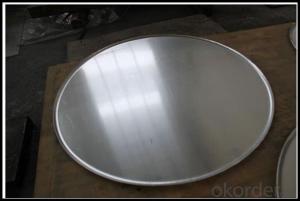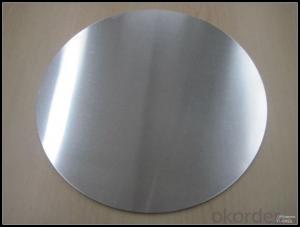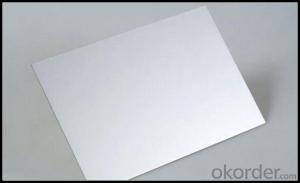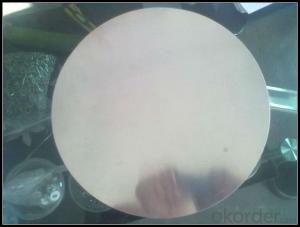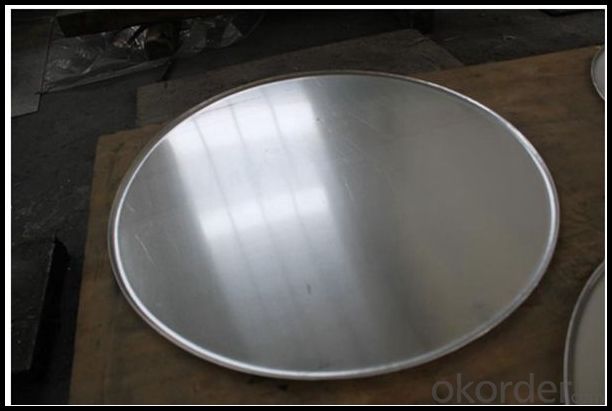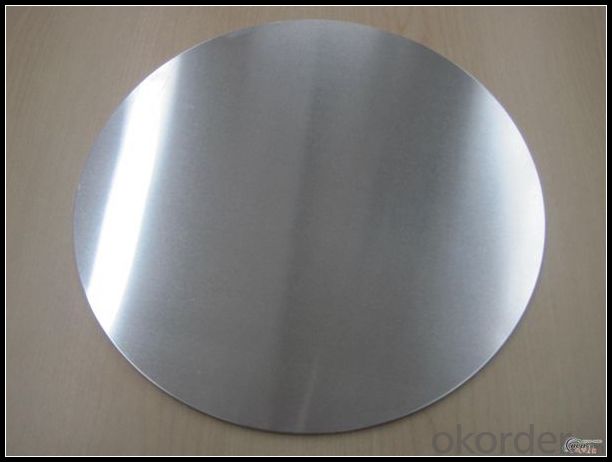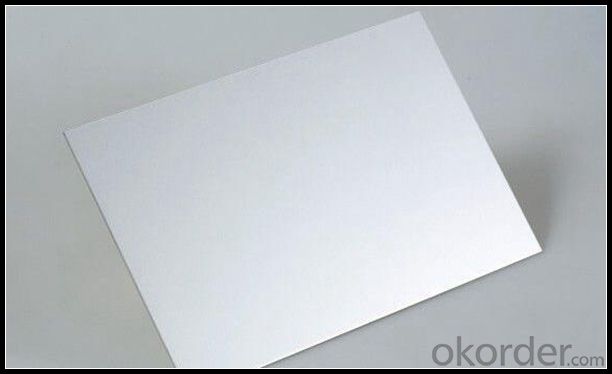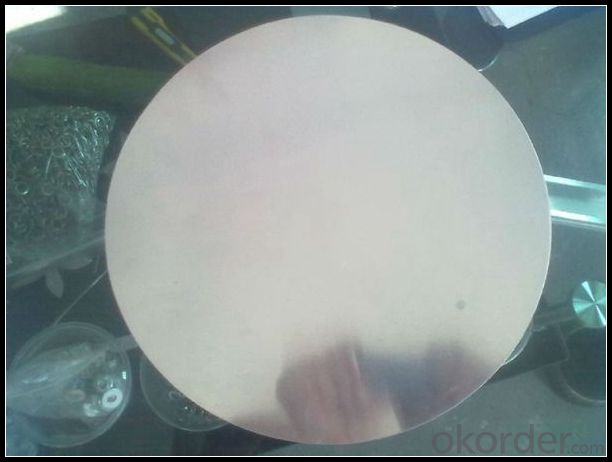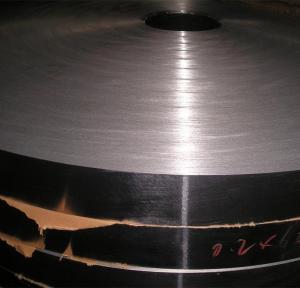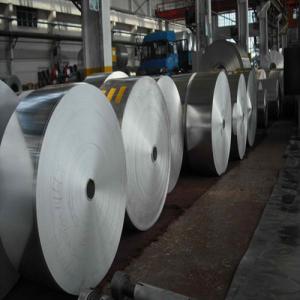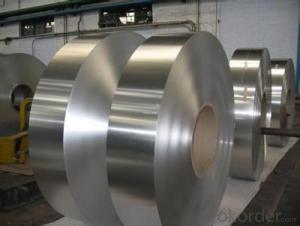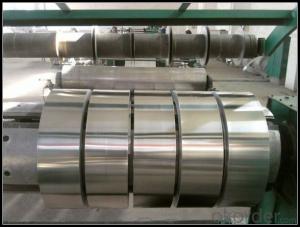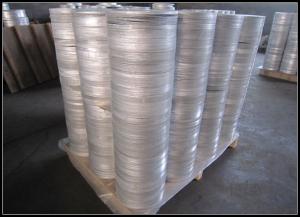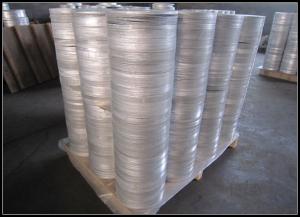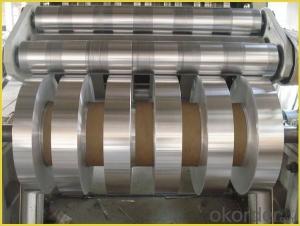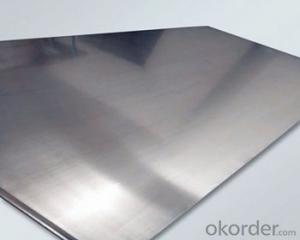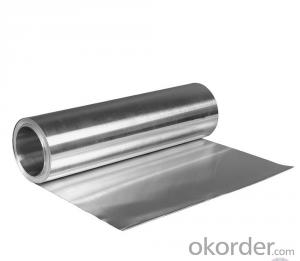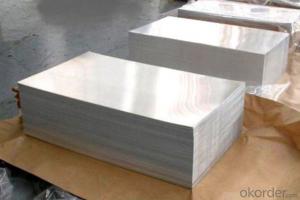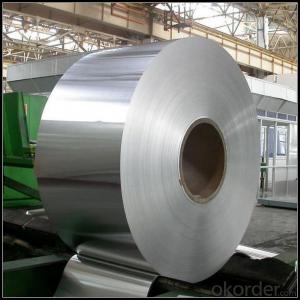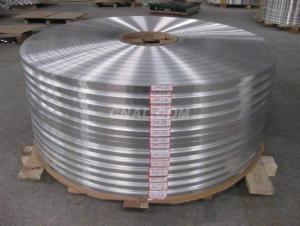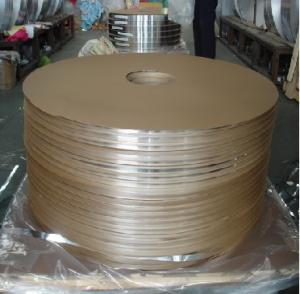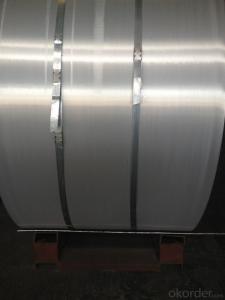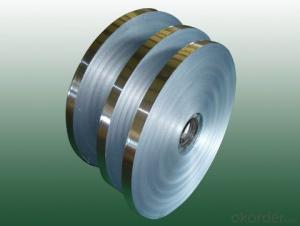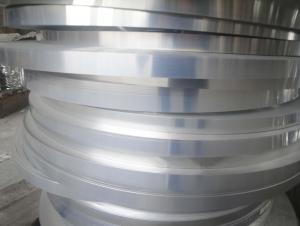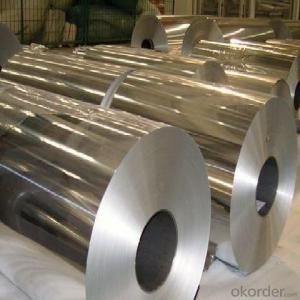1060 Aluminum Strips for Sale - Decorative Construction Sheets
- Loading Port:
- Tianjin
- Payment Terms:
- TT OR LC
- Min Order Qty:
- 1 m.t.
- Supply Capability:
- 4999 m.t./month
OKorder Service Pledge
OKorder Financial Service
You Might Also Like
Specification
1. Specification of Aluminum
1) Alloy | 1050, 1060,1100, 3003 3004 3105 3005 5005 5052 etc |
2) Temper | O/H12/H14/H1/H18/H32/H34/H36/H38//H111/H112/H116/H321/T6/T651/T3/T351 etc |
3) Thickness | 0.1mm to 6mm |
4) Width | 20mm to 3300mm |
2. Application of Aluminum
(1).Interior: wall cladding, ceilings, bathrooms, kitchens and balconies, shutters, doors...
(2).Exterior: wall cladding, facades, roofing, canopies, tunnels,column covers , renovations...
(3).Advertisement: display platforms, signboards, fascia, shop fronts...
3. Feature of Aluminum
Anodising increases the thickness of the oxide layer and thus improves the strength of the natural corrosion protection. Where aluminium is used outdoors, thicknesses of between 15 and 25 ¥ìm (depending on wear and risk of corrosion) are common.
Aluminium is extremely durable in neutral and slightly acid environments.
In environments characterised by high acidity or high basicity, corrosion is rapid.
4. Certificate:
SGS and ROHS(if client request, paid by client), MTC(plant provided), Certificate of Origin(FORM A, FORM E, CO), Bureau Veritas and SGS (if client request, paid by client), CIQS certificate
5. Image of Aluminum
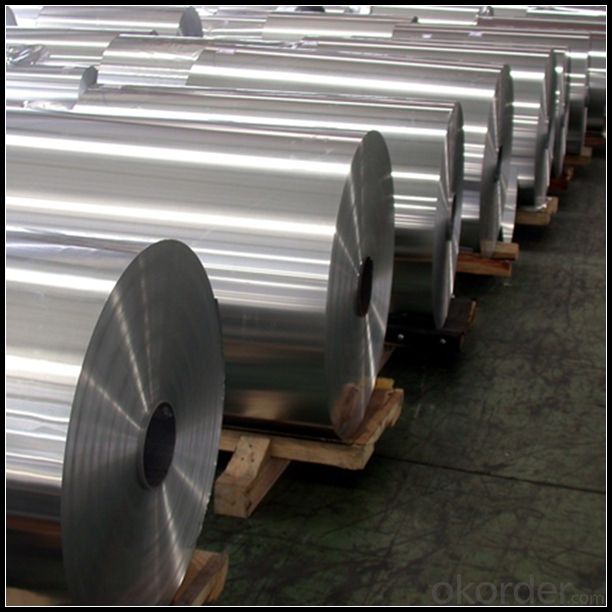
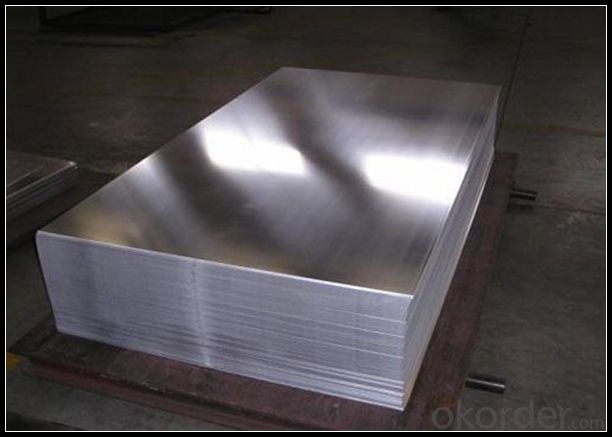
6. Our Service
1. Reply your enquiry in 24 working hours. |
2. OEM, buyer design, buyer label services provided. |
3. Exclusive and unique solution can be provide to our customer by our well traned and professional engineers and staffs. |
4. We can provide free sample for your check |
5. We have the certification of ISO 9001 |
6. Timely delivery |
7. Special discount and protection of sales area provided to our distributor. |
8. Good after-sale service. |
7. FAQ
Q: What is the produce prase? | ||||
A: Normally it would be 40days after received your deposit. | ||||
Q: Can you provide free samples? | ||||
A: Yes, free samples will be sent to you on freight at destination. | ||||
Q: Can I get your latest catalogue? | ||||
A: Yes, it will be sent to you in no time. | ||||
Q: What is the MOQ? | ||||
A: 3 tons | ||||
Q: What are your payment terms? | ||||
A: We accept L/C, D/A, D/P, T/T, West Union,etc. |
- Q: This question asks for a comparison between two types of siding materials: aluminum and steel. It seeks to understand the distinct characteristics that set these two materials apart.
- <p>Aluminum and steel siding are both popular choices for exterior cladding, but they have several differences. Aluminum is lightweight, corrosion-resistant, and requires minimal maintenance, making it ideal for coastal areas. It also comes in a variety of colors and finishes. Steel siding, on the other hand, is more durable and can withstand harsh weather conditions. It is heavier and stronger than aluminum, but it may require more maintenance, such as painting or coating to prevent rust. Steel is also more energy-efficient due to its insulating properties. Both materials offer different benefits and are suitable for different applications based on the climate, design preferences, and budget.</p>
- Q: Aluminum foil tape insulation principle, why insulation?
- It has the functions of heat insulation, waterproof, moisture-proof and so on. Its solar radiation absorption coefficient is very low, which can insulate most of the heat transfer.
- Q: This question asks for a comparison of the cost of aluminum strips with other materials.
- <p>The cost of aluminum strips compared to other materials can vary significantly depending on the specific material being compared. Generally, aluminum is considered an economical choice due to its low cost, availability, and recyclability. It is less expensive than many metals such as stainless steel, copper, and titanium. However, when compared to plastics or some composite materials, aluminum might be more costly. The cost also depends on factors like the current market price of aluminum, the thickness and width of the strip, and the quality of the aluminum. For precise cost comparisons, it's best to consult current market prices and specific product specifications.</p>
- Q: What are the environmental regulations that impact the production and usage of aluminum strips?
- <p>Yes, there are several environmental regulations that affect the production and use of aluminum strips. These include regulations on emissions, waste disposal, and energy consumption. For instance, the European Union's Industrial Emissions Directive sets standards for emissions from aluminum production facilities. In the United States, the Environmental Protection Agency (EPA) enforces regulations such as the Clean Air Act and Resource Conservation and Recovery Act (RCRA), which impact how aluminum is produced and used. These regulations aim to minimize pollution, conserve resources, and promote recycling, thereby influencing the aluminum industry's practices globally.</p>
- Q: What are the potential environmental concerns associated with the use of aluminum siding in construction?
- <p>While aluminum siding is lightweight and durable, there are environmental concerns associated with its production and disposal. The manufacturing process is energy-intensive and can emit greenhouse gases. Additionally, the extraction of bauxite, the primary source of aluminum, can lead to deforestation and habitat destruction. At the end of its life, aluminum siding can be recycled, which is beneficial, but improper disposal can still contribute to landfill waste. The environmental impact depends on the lifecycle management of the material, including responsible production, use, and recycling practices.</p>
- Q: Can welding of aluminum with water-cooled DC hydrogen arc welding machine how much money
- Welding of aluminum aluminum strip selection power size size, with water cooling can be cheaper by 220V with water and electricity fire water tank, about 3000
- Q: Does aluminum maintain its properties and resist damage from fire?
- <p>Aluminum strips are relatively fire-resistant, but not completely immune to damage. Aluminum has a high melting point of approximately 660掳C (1220掳F), which means it can withstand high temperatures without melting. However, it can still oxidize and corrode at elevated temperatures, leading to a loss of structural integrity over time. While it may not catch fire, it can still be affected by prolonged exposure to fire, and its performance can degrade depending on the specific conditions and the protective measures in place.</p>
- Q: Is it appropriate to use aluminum strips for constructing outdoor furniture?
- <p>Yes, you can use aluminum strips for outdoor furniture. Aluminum is a popular choice due to its durability, resistance to corrosion, and low maintenance requirements. It doesn't rust and can withstand various weather conditions, making it suitable for outdoor use. However, ensure that the aluminum is of high quality and treated to resist UV rays and other environmental factors to prolong its lifespan and maintain its appearance.</p>
- Q: Explain the impact of aluminum strips on indoor air quality, including any potential benefits or drawbacks.
- <p>Aluminum strips themselves do not directly affect indoor air quality. They are often used in construction and design for their strength and lightweight properties. However, if aluminum strips are improperly treated or coated with harmful chemicals, they could potentially off-gas and contribute to poor indoor air quality. Additionally, aluminum strips can sometimes be used in conjunction with air purifiers or ventilation systems, where they might help in filtering out pollutants. It's essential to ensure that any materials used in indoor spaces are safe and do not release harmful substances into the air.</p>
- Q: This question asks for the primary applications or purposes of using aluminum strips.
- <p>Aluminum strips are primarily used in various industries due to their lightweight, corrosion resistance, and high strength-to-weight ratio. They are commonly used in construction for framing and cladding, in the automotive industry for vehicle bodies and parts, in aerospace for aircraft components, and in electrical applications for wiring and conductors. Additionally, aluminum strips are employed in packaging, such as food and beverage cans, and in the manufacturing of electronic devices and heat exchangers. Their versatility makes them a popular choice for many applications where durability and performance are required.</p>
Send your message to us
1060 Aluminum Strips for Sale - Decorative Construction Sheets
- Loading Port:
- Tianjin
- Payment Terms:
- TT OR LC
- Min Order Qty:
- 1 m.t.
- Supply Capability:
- 4999 m.t./month
OKorder Service Pledge
OKorder Financial Service
Similar products
Hot products
Hot Searches
Related keywords
